For perhaps only a few months in 1851 and 1852 four young men shared a house, dubbed Singleton House by Charlotte Godley, on London Street in Lyttelton - pretty much where Freshchoice is these days.
While this may sound like a pitch for a sitcom, these four men all had their hand in shaping New Zealand. However, only one was to spend the rest of his life in Aotearoa and live to an old age. They were (links lead to their Macdonald Dictionary entries, major sources for this post):
- James Frederick Stuart-Wortley, 1833 - 1870
- Thomas Hanmer, 1827 - 1892
- Charles Thomas Maunsell, ? - 1859
- Charles Christopher Bowen, 1830 - 1917
The wonderful Charlotte Godley (wife of John Robert Godley, founder of Canterbury) describes a ball that took place at the house around November 1851:
[The ball] was given on a scale of unrivalled splendor by the four bachelors who live together in what we call Singleton House: Mr Hanmer, Mr Wortley, Mr Maunsell and Mr Bowen. They had taken the greatest possible pains with their arrangements, had a large porch made over the door, etc., for the night, and quite a smooth floor, which is a most pleasing variety. There was a very recherché supper, too, I believe, but after four dances we came away.
Letters from Early New Zealand, Charlotte Godley, p273-4
The name of the house even made it into the 1852 Jury List, where Mr Maunsell and Mr Bowen are listed as living there. Looking at Lyttelton town sections suggests the house was built either on sections 28/29 which belonged to Stuart-Wortley's family or sections 30/31 which belonged to Charles Maunsell. Alas, they did not remain housemates for long as their lives and careers developed over the 1850s and beyond.
Cake lover and youngest MP
James Frederick Stuart-Wortley was the son of Lord Wharncliffe and was born in Yorkshire, coming out on the Charlotte Jane. Along with Edward Ward (who I reckon would also have been a housemate had he and his brother not drowned in mid-1851) he was an honorary secretary of the Canterbury Society of Colonists. The Cyclopedia of New Zealand describes him as an 'accomplished gentleman', which he may have been, but he was very young. Charlotte Godley states that "he is only eighteen, and fond of cake," (Godley, p159), and seems to have worried about him falling into bad company, "I should think he might turn out very well, if he takes to, and is led by, the right people," (Godley, p159).
With Thomas Hanmer and Belfield Woollcombe, he invested in the Hawkswood station north of Cheviot. In 1853 he was voted into the first New Zealand parliament, as member for Christchurch Country, a large rural electorate. He remains New Zealand's youngest ever MP, being 20 when he was elected - indeed he was technically too young to vote himself, the voting age being 21 in those days.
He did not stay much longer in New Zealand, travelling back and forth between here and the UK between 1855 and 1858. For the last few years of his life he worked in politics - being an attaché for British Prime Minister William Gladstone's mission to Corfu and a member of Lord Elgin's mission to China. He died in 1870 aged around 37, from 'softening of the brain' - presumably a brain haemorrhage. As he still owned land in New Zealand a copy of his will can be found on Archives New Zealand (and I love how his death certificate gives his rank or profession as 'son of a peer').
What would he make of the new water slides?
It was Thomas Hanmer's connection to Hawkswood that led to him surveying the areas which probably bear his moniker - the Hanmer Plains and Hanmer Springs (although even in the area's Golden Jubilee publication the author, Philip McManaway, "cannot vouch" (p5) for this fact). Certainly he never lived in the area. He arrived on the Castle Eden in February 1851 along with Charles Maunsell. Charlotte Godley was a fan:
We like Mr Hanmer very much, and so does everyone here, and we see him pretty often now in the evening, as he is waiting in port for the winter, while the weather is too bad for farming his station, which is always rather hard work
Godley, p225
He was also one of the founders of the Christchurch Club, but did not stay long enough in the country to enjoy it. It looks like he spent time in Australia and the UK - where he got married - in the middle of the 1850s. He then became a well-established farmer in Darling Downs, Queensland, and died there in 1892.
We definitely require hospitals
Charles Maunsell is the most mysterious of the four singletons. He was probably born in Ireland in the 1820s, and also arrived in Lyttelton on the Castle Eden. Diarist Edward Ward was a fan, saying that of the Castle Eden settlers: "Maunsell seems the nicest and the only nice fellow." Indeed, Ward compares his old chum Stuart-Wortley unfavourably with Maunsell:
Wortley continues to board with us and is a serious burden upon our resources, especially as he gives no thanks for it and we have a guest besides in Maunsell who (sooth to say) is much better worth his salt.
Maunsell only stayed a few years in Canterbury. He died on 9th January 1859 at his father's house in Limerick. It is in his will that we see his legacy to Christchurch, and a continued connection with an old housemate:
I bequeath to the said Richard James Strachan Harman [also an attorney to the trustee of Stuart-Wortley's estate], John Warburton Hamilton and Charles Christopher Bowen the sum of 100 pounds sterling towards the building of an hospital in the town of Christchurch in New Zealand, when such a establishment shall be required.
Will of Charles Thomas Maunsell in the Ireland, Wills and Grants of Probate, 1858-1900, Ancestry Library Edition
It was just two years later in 1861 that a hospital for Christchurch was proposed, and it opened the following year. Additionally Maunsell also bequeathed money to the three above mentioned men to buy a remembrance of him.
The one who stayed
The life of Charles Bowen has been well documented, his involvement in local and national government spanning the latter half of the nineteenth century, and his work with his in-laws, the Markham family, in bringing Robert Falcon Scott and his expeditions to Christchurch. But he was once a young man, making the long journey on the Charlotte Jane with Stuart-Wortley and Ward, and other well known Cantabrians:
Cholmondeley, Wortley, Bowen, Mr and Mrs Kingdon, FitzGerald and I clustered on a corner of the poop and played at inventing a story, which passed from mouth to mouth with abrupt transition.
A snapshot in time
Alas, there isn't room in this post to look at the lives of these four men in the detail they deserve, but the idea of these interesting characters living together, hosting balls, and being watched over by Charlotte Godley has really struck a chord with me.
Find out more
Posts about 19th Century Canterbury
- Life on a sheep station in the 1860s – more hilarious than you might think
- Charles Reginald Shaw: Father, surveyor, farmer
- The shipboard diary of Henry Bottle
- QUIZ: Canterbury’s 19th century settlers
Library resources

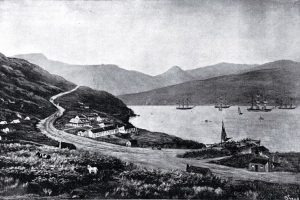
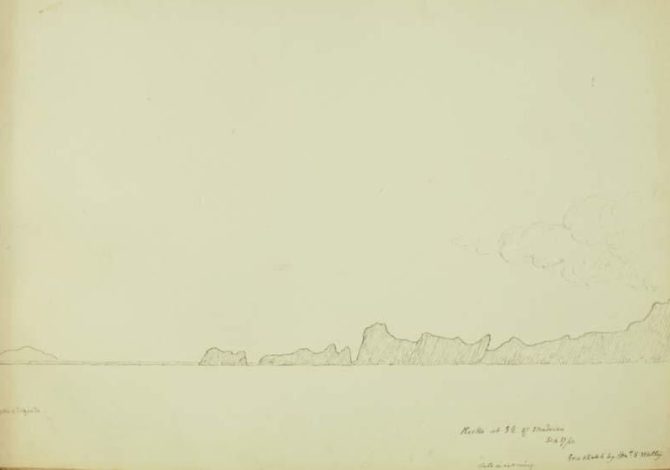
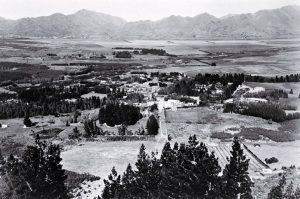
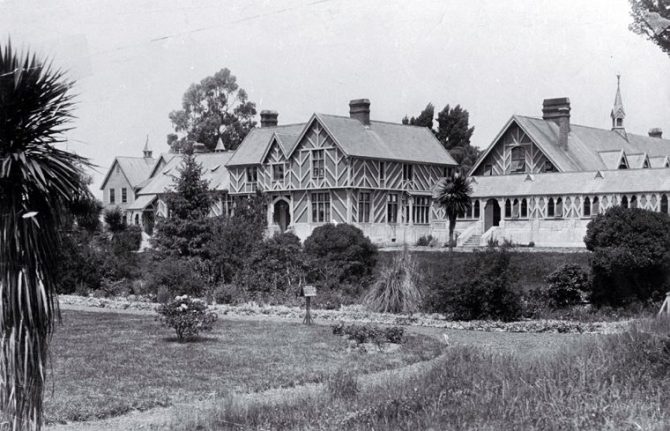
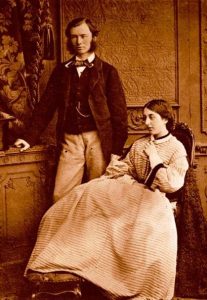

Add a comment to: The young men of Singleton House